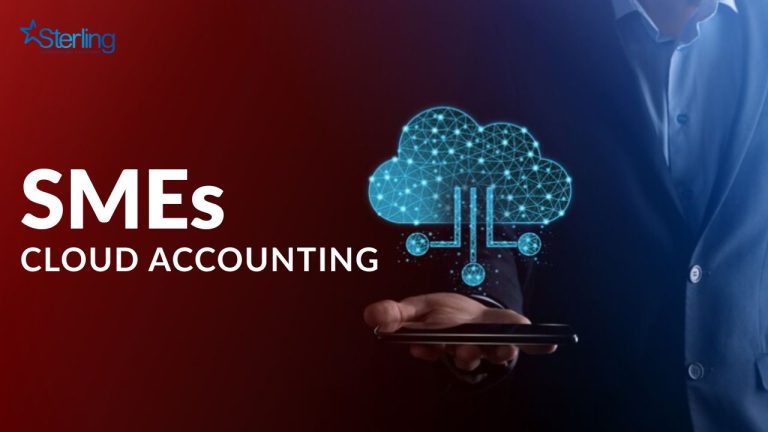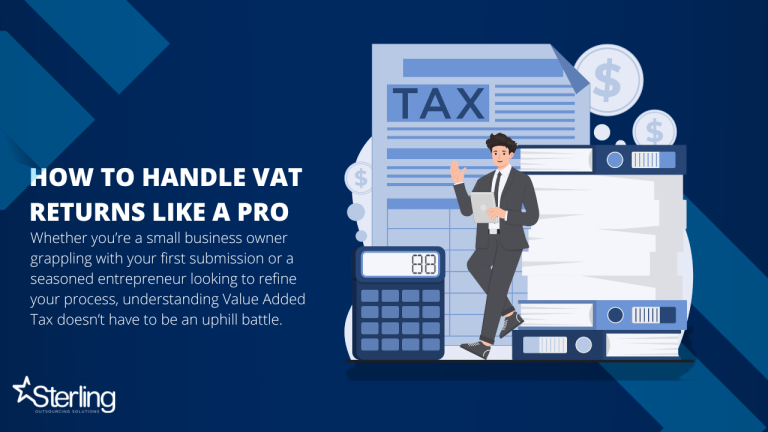In today’s fast-paced digital economy, small and medium-sized enterprises (SMEs) are increasingly turning to cloud accounting to streamline their financial operations. Traditional accounting systems are often expensive, time-consuming, and prone to human error. Cloud-based accounting solutions offer SMEs a smarter, more efficient way to manage their finances while enhancing accuracy, security, and accessibility.
This blog explores how cloud accounting is transforming financial management for SMEs, highlighting its key advantages and why businesses should consider making the switch.
What is Cloud Accounting?
Cloud accounting refers to online accounting software that allows businesses to manage their financial data through the internet rather than relying on locally installed programs. Unlike traditional desktop accounting software, cloud-based solutions enable real-time access to financial data from anywhere, using any internet-connected device.
Popular cloud accounting platforms include Xero, QuickBooks Online, FreshBooks, and Sage Business Cloud.
Key Benefits of Cloud Accounting for SMEs
- Anytime, Anywhere Access
One of the biggest advantages of cloud accounting is remote accessibility. Business owners and accountants can log in from any device—laptop, tablet, or smartphone—to manage their finances in real time. This is especially beneficial for:
✔ Remote teams and work-from-home setups
✔ Business owners who travel frequently
✔ Companies with multiple locations
- Cost-Effectiveness & Scalability
Unlike traditional accounting software, which requires large upfront costs for licensing, installation, and maintenance, cloud accounting follows a subscription-based model. SMEs benefit from:
✔ Lower initial investment
✔ Automatic updates without additional costs
✔ Easy scalability as the business grows
- Enhanced Security & Data Backup
Cloud accounting providers invest heavily in top-tier security measures, such as:
✔ Data encryption to protect sensitive information
✔ Regular automated backups to prevent data loss
✔ Multi-factor authentication (MFA) for secure logins
This eliminates the risk of losing financial records due to hardware failures, theft, or cyberattacks.
- Real-Time Financial Insights
Traditional accounting often leads to delays in accessing financial reports. With cloud-based solutions, SMEs can:
✔ Track cash flow, expenses, and revenue in real time
✔ Generate financial reports instantly
✔ Use AI-powered insights to make data-driven business decisions
- Automation & Reduced Manual Work
Cloud accounting automates many repetitive tasks, helping SMEs save time and minimize errors:
✔ Automated invoicing and payment reminders
✔ Bank reconciliation with real-time transaction syncing
✔ Tax calculations and compliance tracking
- Seamless Integration with Other Business Tools
Most cloud accounting platforms integrate seamlessly with:
✔ CRM software (e.g., HubSpot, Salesforce)
✔ Payroll & HR systems (e.g., Gusto, BambooHR)
✔ E-commerce platforms (e.g., Shopify, WooCommerce)
This ensures better workflow automation and improved efficiency across departments.
- Compliance & Tax Regulation Support
Cloud accounting software helps SMEs stay compliant with local tax regulations by:
✔ Generating tax reports automatically
✔ Calculating VAT/GST obligations
✔ Keeping records organized for audits
- Improved Collaboration with Accountants
Since data is stored in the cloud, accountants and financial advisors can access the same up-to-date records, enabling:
✔ Faster decision-making
✔ Streamlined tax filing
✔ Efficient bookkeeping processes
How to Choose the Right Cloud Accounting Software?
When selecting a cloud accounting solution, SMEs should consider the following:
| Feature | Why It Matters |
| User-Friendly Interface | Ensures ease of use for non-accounting professionals |
| Customization Options | Adapts to the specific needs of your business |
| Integration Capabilities | Connects with existing business tools |
| Pricing & Subscription Plans | Fits within your budget and scales with growth |
| Customer Support & Training | Provides assistance when needed |
Some of the top-rated cloud accounting platforms for SMEs include:
✔ Xero – Best for growing businesses
✔ QuickBooks Online – Ideal for small businesses
✔ FreshBooks – Great for freelancers and service-based businesses
✔ Zoho Books – Affordable and feature-rich
Is Cloud Accounting Right for Your Business?
If your SME struggles with manual bookkeeping, financial inefficiencies, or lack of real-time financial visibility, then cloud accounting is the ideal solution. By reducing administrative burdens and enhancing financial accuracy, it allows businesses to focus on growth and profitability.
Final Thoughts
Cloud accounting is not just a trend—it’s the future of financial management for SMEs. Whether you’re a startup, freelancer, or an established business, switching to a cloud-based solution can help you stay competitive, agile, and financially healthy.
Ready to transform your SME’s financial management? Explore cloud accounting solutions today and take control of your business finances with confidence!
Want expert guidance on adopting cloud accounting for your SME? Visit Star Sterling Outsource to explore how we can help optimize your financial management! 🚀




